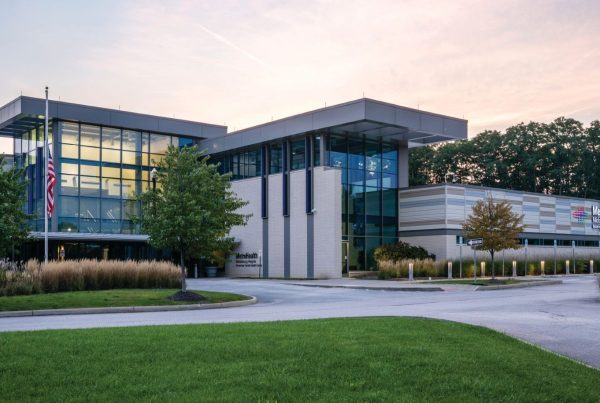Early detection gives providers the best chance of treating breast cancer before it spreads, when the survival rate is well above 90%. MetroHealth’s providers assess a patient’s risk starting at age 35 and recommend baseline screening mammograms at age 40.
Every two minutes, a woman in the United States is diagnosed with breast cancer. It is the second most common cancer and the second leading cause of cancer deaths in women in this country.
- Breast cancer makes up about 30% of all cancers diagnosed in women each year.
- There are nearly 300,000 new cases of invasive breast cancer and 43,700 deaths every 12 months.
- African American women are more likely to have more advanced and more aggressive types of breast cancer at the time of diagnosis.
- 75% of women who are diagnosed with breast cancer have no identifiable risk factors or known family history.
Early detection gives providers the best chance of treating the cancer before it spreads, when the survival rate is well above 90%. MetroHealth’s providers assess patient’s risk starting at age 35 and recommend baseline screening mammograms at age 40.
We use both 2D and 3D mammography at all screening locations. 3D mammography allows providers to look through overlapping tissues in the breast in a way that 2D mammograms do not, increasing detection of cancer. 3D mammography is a standard annual offering at MetroHealth, and patients do not pay extra to receive this extra screening.
For women who are at high risk for breast cancer due to family history or other factors, we recommend an evaluation at our high-risk breast clinic.
If you have dense breasts, you will be offered a supplemental screening ultrasound known as Automated Breast Ultrasound (ABUS). Through ABUS, your MetroHealth care team can look inside dense breast tissue to differentiate between dense tissue and potential changes that can show cancer. Combining a mammogram with ABUS is 97% effective at finding cancer.
Under Ohio law, insurance must cover one annual screening mammogram, regardless of a woman’s age or risk factors. It also specifies that MetroHealth’s 3D mammogram is covered. The law also requires supplemental screening exams (ABUS and MRI) for dense breasts and high-risk patients to be covered by Medicaid, other health insurers, and public employee benefits plans.
MetroHealth is designated as a Breast Imaging Center of Excellence by the American College of Radiology’s Commission on Quality and Safety and the Commission on Breast Imaging, and offers screenings in many convenient locations as well as a mobile coach.
- 3D mammography screening (tomosynthesis)
- Diagnostic breast ultrasounds
- Automated breast ultrasounds (ABUS)
- Breast MRIs for high-risk patients
- MetroHealth’s 3D Mammography Coach
- Call 216-957-8848 to schedule a screening at one of several Discount Drug Mart locations in Northeast Ohio.











